Through entrepreneurial action, Enactus students create sustainable solutions to social challenges. Their collective efforts make Enactus a powerful instrument of change to advance progress on the world’s biggest problems. In this blog series, one United Nations Sustainable Development Goal (or SDG) at a time, we examine how Enactus students are designing, innovating, and pushing boundaries, to create a better world for people, planet, and prosperity.
Access To Clean Water Requires Multiple Streams Of Solutions
If you live in one of India’s informal city settlements, you likely spend a disproportionate amount of time thinking about and retrieving water that is at least marginally acceptable to drink. In these communities where nearly half of the urban Indian population live, people are packed into structures resembling life-sized houses of cards propped precariously on the ground. There is no plumbing and no infrastructure providing access to clean water. The world’s second largest population is second to last when it comes to water quality.
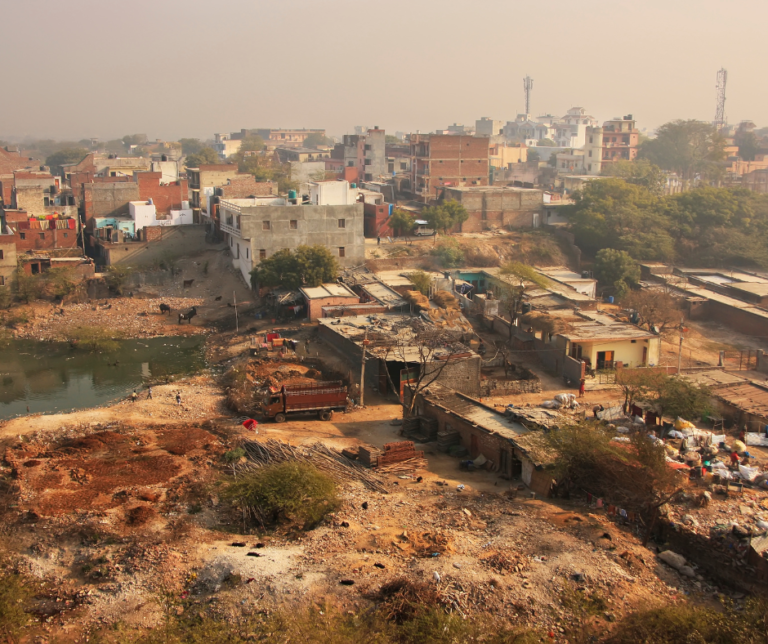
Access to clean water is erratic instead of ever present for those living in informal settlements. Like freshwater foragers, residents seek out pipelines, borewells, and private water tankers. Many travel long distances to stores where they can purchase 20-liter water drums, which are expensive. The average price of 1.5 liters of water is 30 Rupees, a significant expense for many, considering that nearly 15% of the entire Indian workforce earns less than 5,000 Rupees a month.
The United Nations estimates there needs to be a four-fold acceleration in progress on Global Goal 6 if the world population is to have clean water and sanitation by 2030. Contamination, supply logistics, and affordability are all challenges to be addressed.
Two Enactus teams in India offer different approaches to help communities quench their thirst for easier access to life’s most fundamental need: drinkable water. One depollutes water ways, the other decontaminates harvested water and provides it at convenient dispensaries at affordable prices. Both offer solutions for augmenting incomes of those directly impacted by a lack of fresh drinking water.
In sewers and drains, slicks of discarded cooking oil invite mosquitos to deposit their larvae and feast on algae growing in the phosphorous- and nitrogen-rich slime. As the fetid waters continue to feed swarms of organisms, they grow increasingly toxic for human consumption.
The Enactus team at The College of Vocational Studies, Delhi University finds opportunity in the used cooking oil on the water’s surface. Project Abyaan is a circular model that begins with oil banks where restaurants can deposit their used cooking oil. The oil is the base material for a soap-making enterprise.
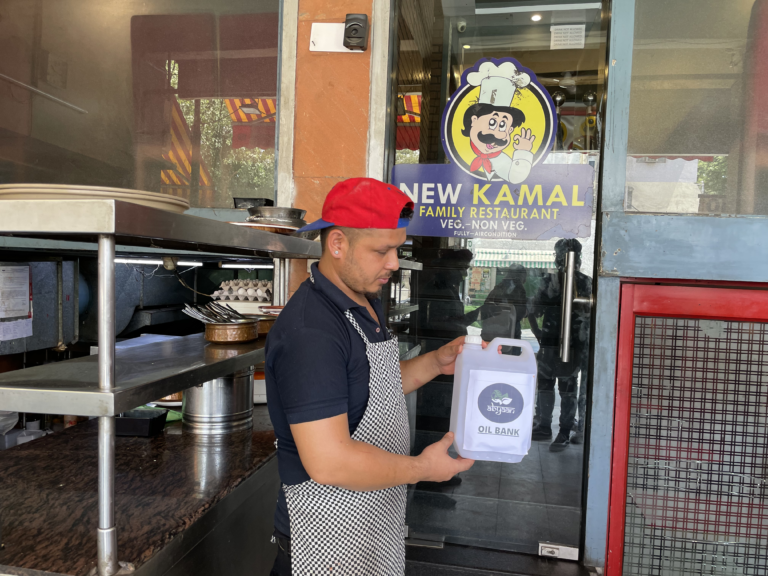
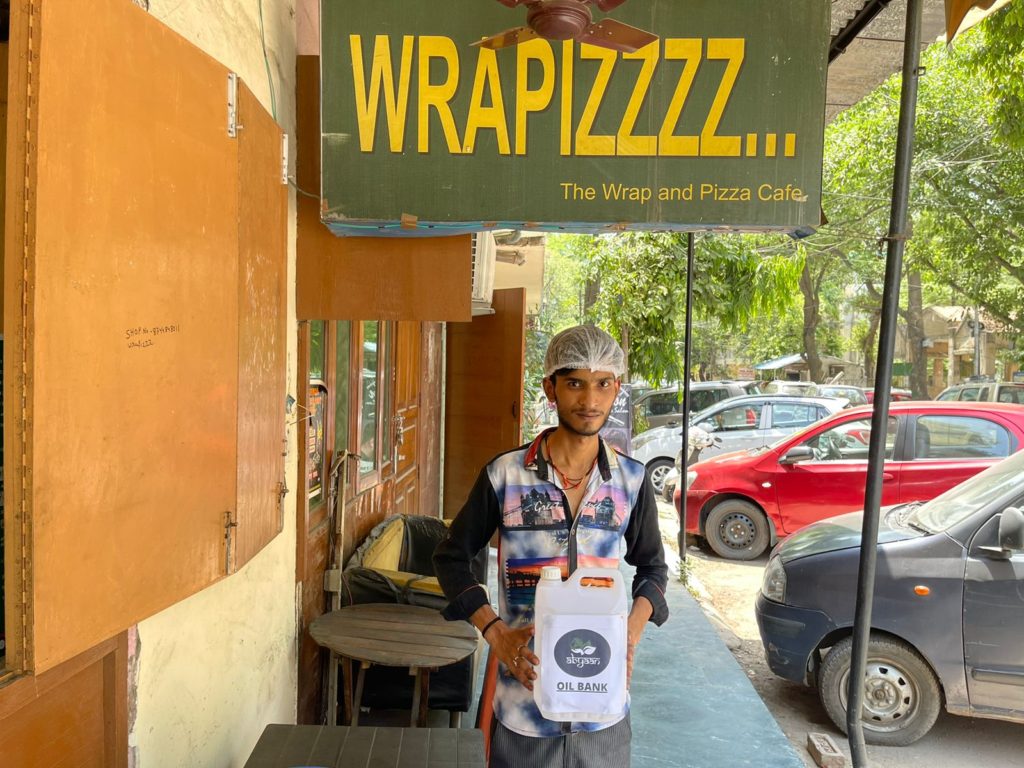
Project Abyaan collaborates with Sewa Bharti, an NGO based in Rohini, Delhi, whose mission is to promote self-reliance. Together they provide job opportunities and teach vocational skills to women living in these same impoverished communities where the cooking oil contaminates the water.
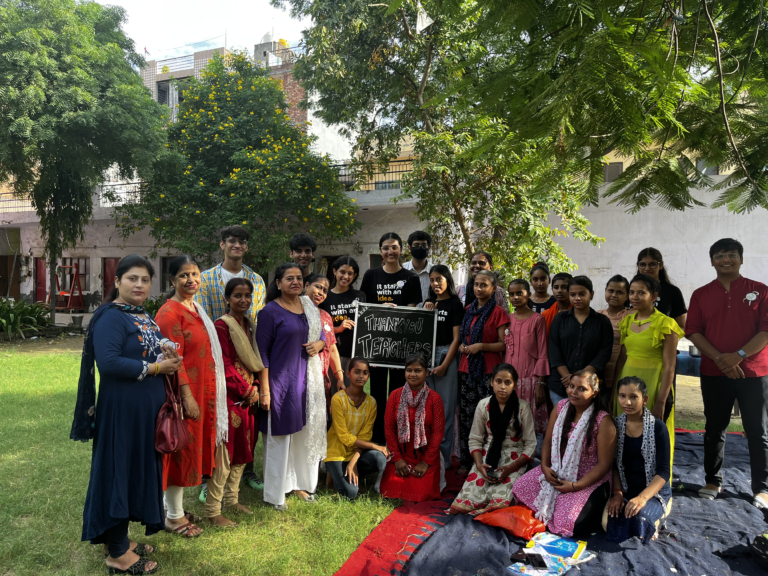
Women who comprise the Abyaan workforce both make and sell soap. Soap making happens in the home, giving the women scheduling flexibility to provide for their family needs, seek additional education opportunities, and more. They sell the soaps at stalls in their communities, providing a hygienic product to their neighbors while earning an income.
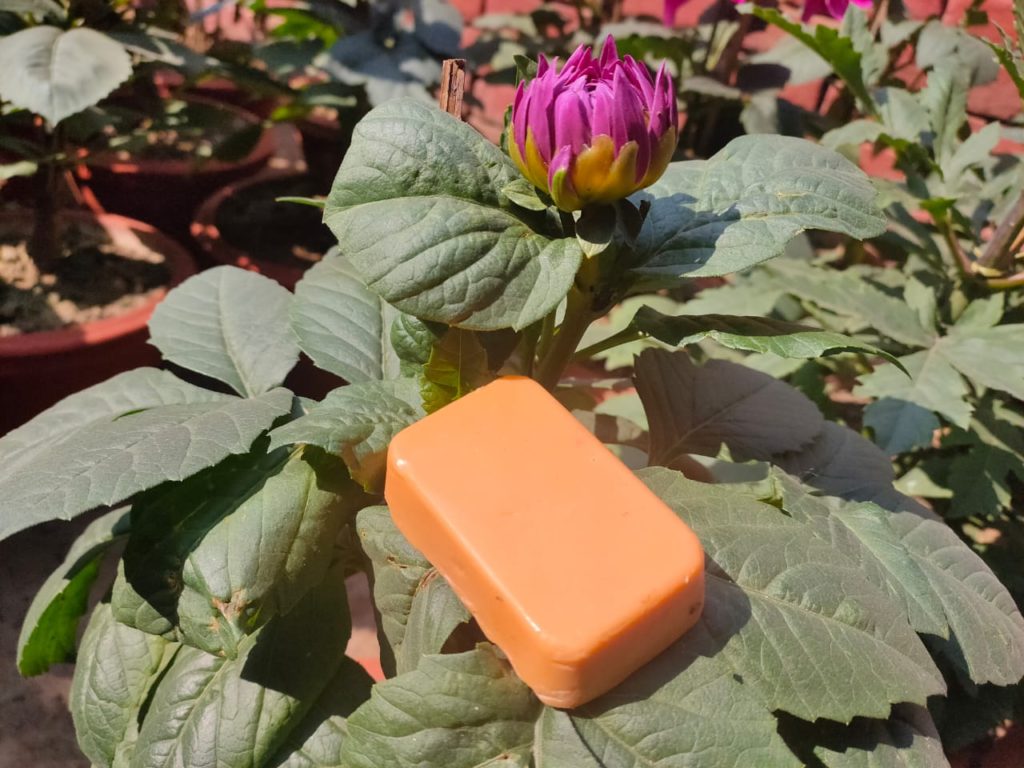
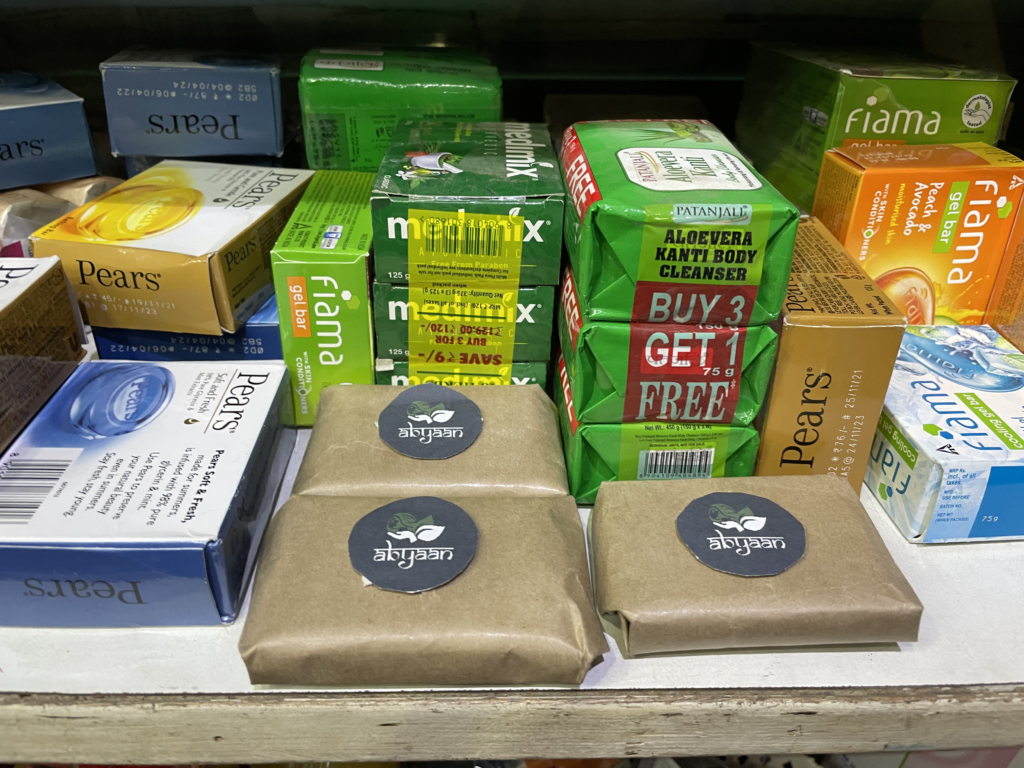
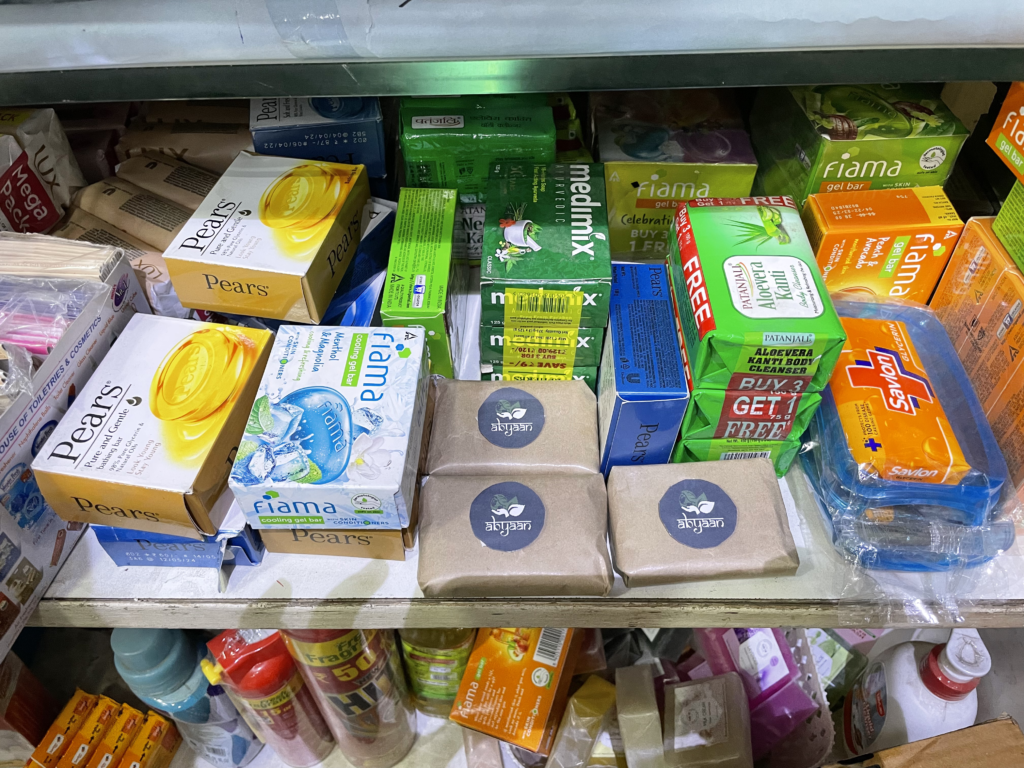
Sukhmail Kaur lives in Ropar, Punjab, owns a grocery store, and now represents a team of female entrepreneurs who make and sell soap. Project Abyaan provides them a wage as well as continuing education on transferable business skills like marketing, finance, and management. Project Abyaan’s circular enterprise uses a community problem to create a community solution for a business that is self-sustaining. Sukhmail’s young daughter Khushmanpreet Kaur, who has witnessed the hardships of women around her, is inspired to become an entrepreneur.
Sukhmail is one of nine women entrepreneurs participating in Project Abyaan. They have produced 975 soaps upcycled from used cooking oil, and that endeavor has prevented 225 liters of carbon dioxide from polluting waterways. The women fueling the Abyaan enterprise are gaining social acceptance as valuable entrepreneurs and enjoying the ability to provide greater financial security for their families. With augmented incomes, they have access to services like electricity and sanitation.
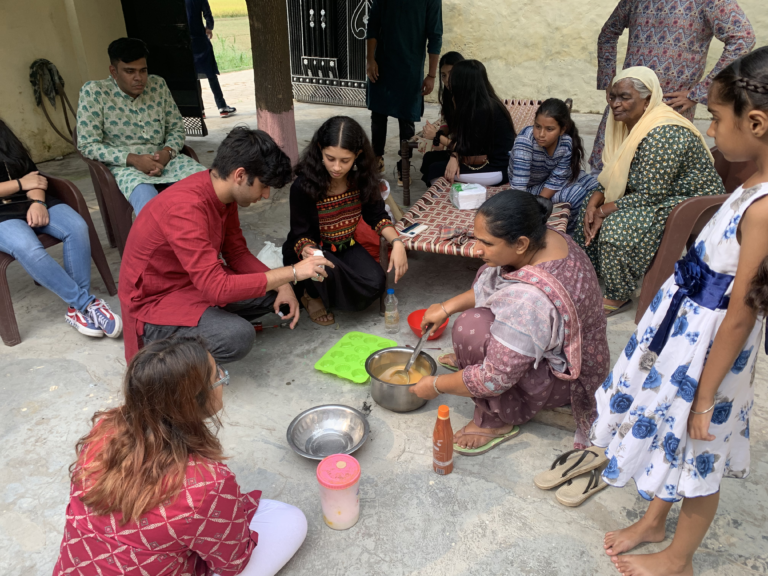
Across Delhi, Haryana, and Uttar Pradesh, Enactus students at Shri Ram College of Commerce make strides to provide potable water to those in informal settlements and remote rural households. Project Asbah deploys contamination-specific community filtration plants and returns purified water to communities at rates as low as four Rupees per 20 liters.
Project Asbah hires two women entrepreneurs to run the daily operations of each plant. These women belong to a stigmatized background with no prior history of financial independence, or they are single women requiring income assistance. Project Asbah provides them with an entrepreneurial education so that they have the knowledge and skills to independently manage the plants.
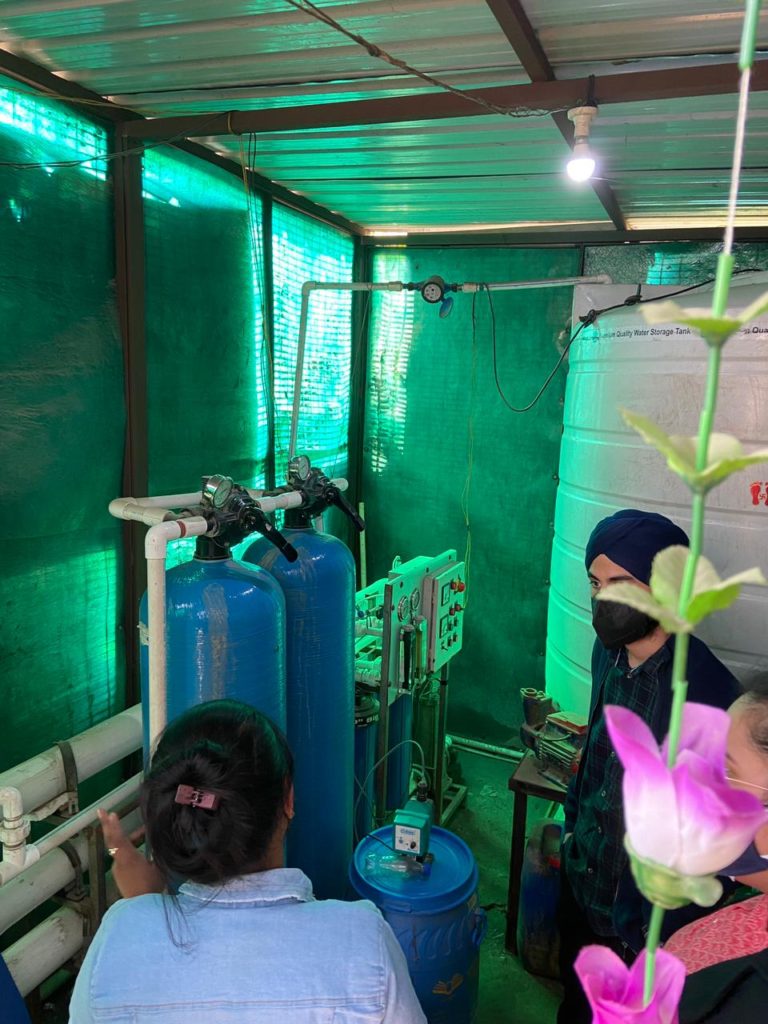
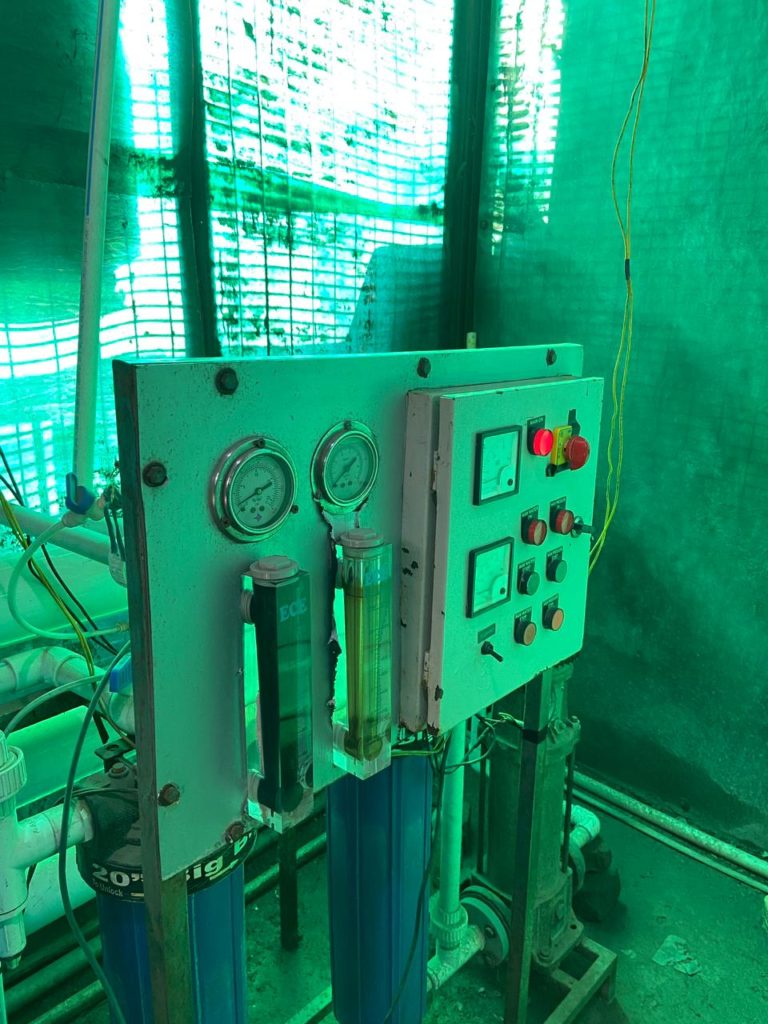
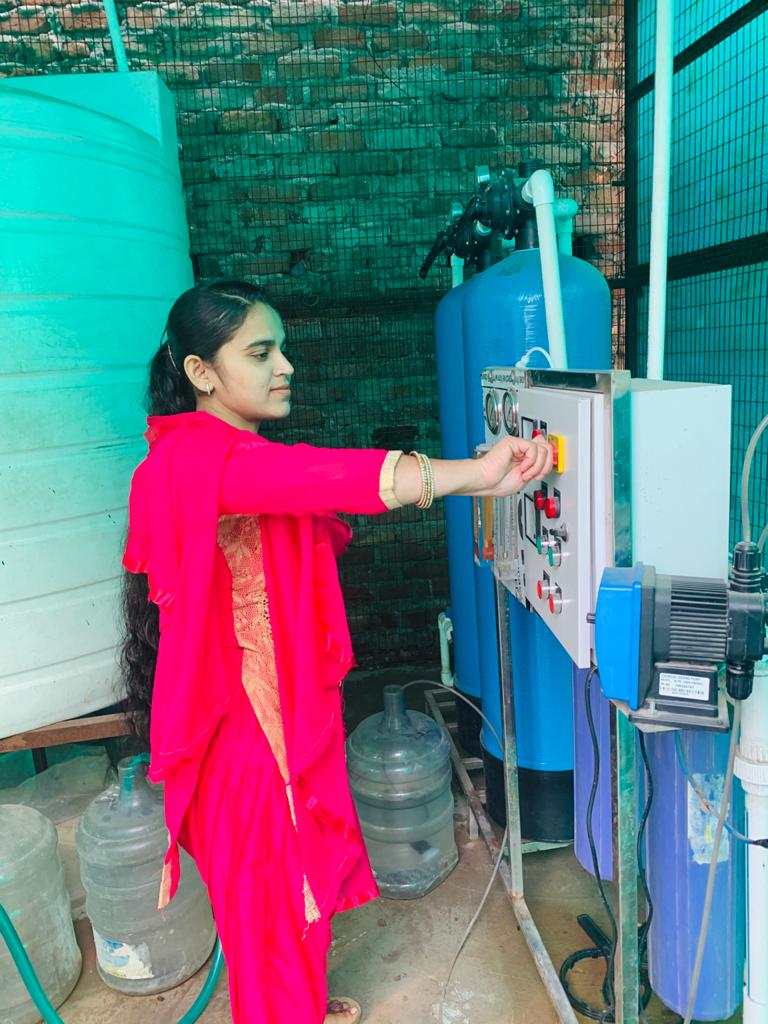
There are now 42 women entrepreneurs within Project Asbah. The Enactus team affectionally calls them by the familial term of endearment, “Didi. “To date the Didis’ incomes have increased 550%. Project Asbah extends a 20% commission on surplus purified water production, further incentivizing the plant managers’ entrepreneurial drive.
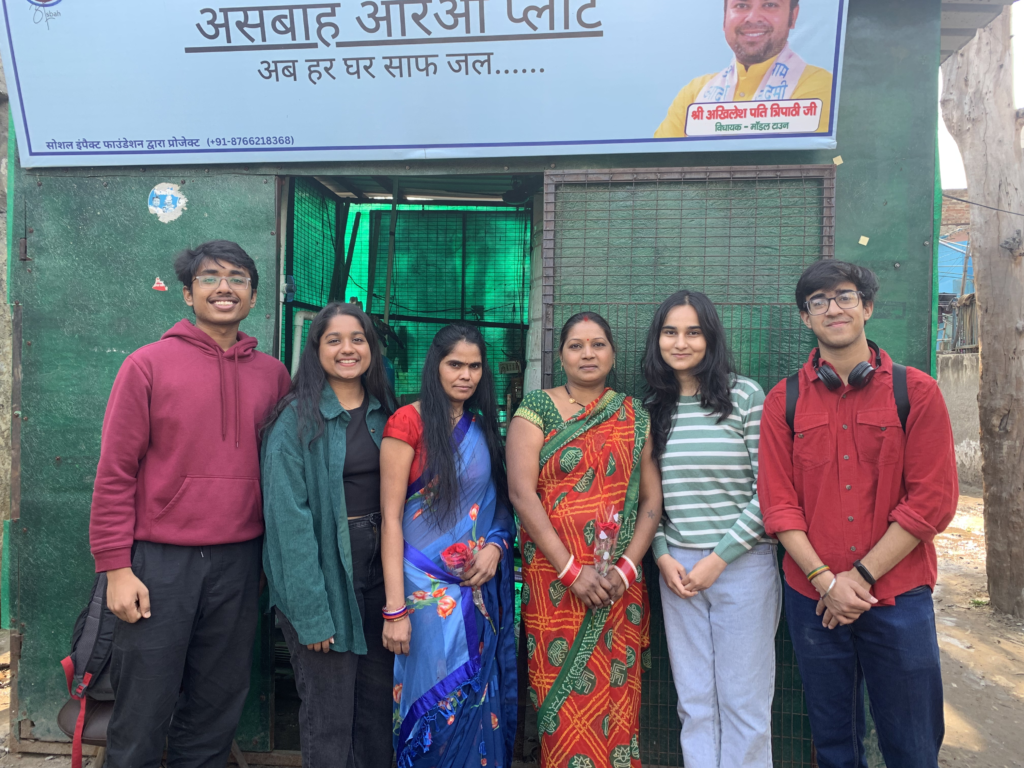
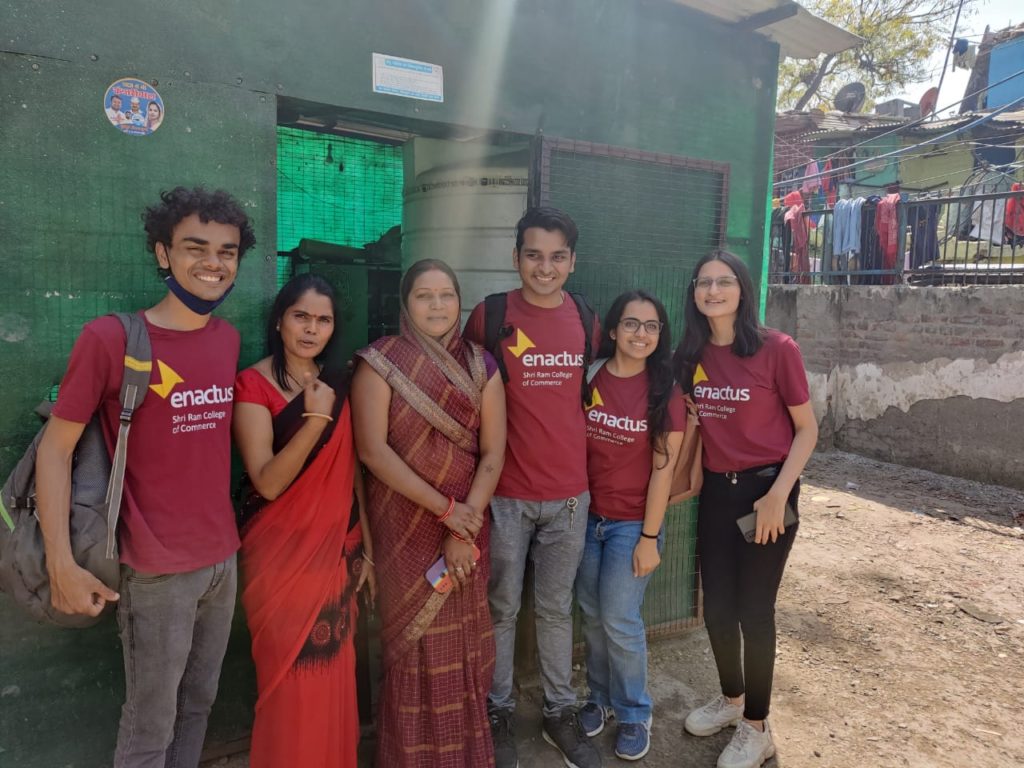
Enactus Project Asbah members with plant managers
The Enactus team hopes to augment Project Asbah with Water ATMs in rural areas and provide an automatic exchange of 20 liters of water per four Rupees. The amount of water a person could transact with four Rupees is 13 times greater than one could purchase retail.
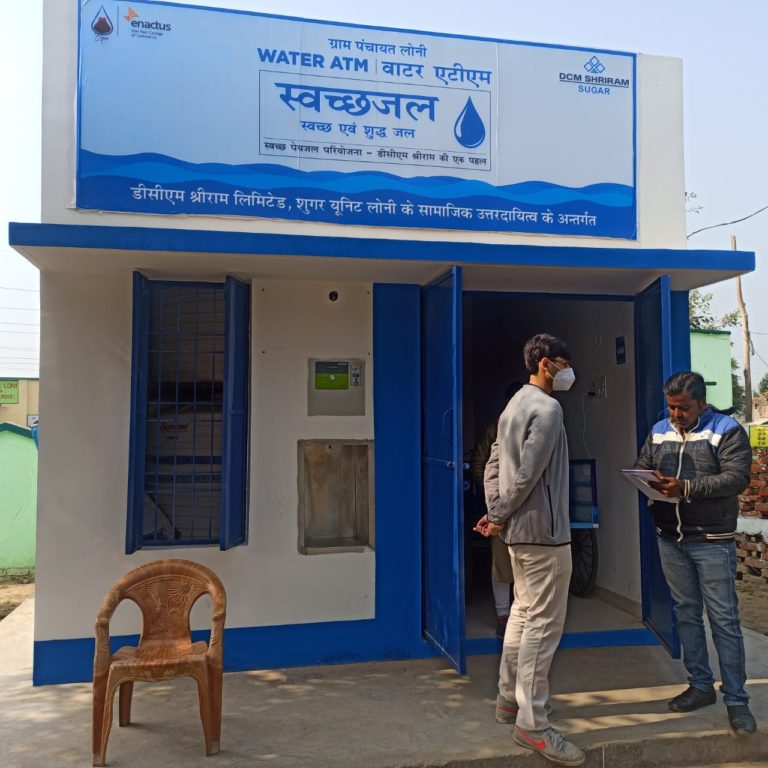
The team has additional goals of establishing a solar-powered desalination plant and creating a mobile water bank. This traveling water reservoir on wheels would reduce the hardship of people traveling to purchase water; rather the bank would serve communities from within.
Project Asbah encompasses 21 community filtration plants across India. Its clean water initiative has reduced water and health expenditures for informal settlement residents by 87%. Project Asbah currently has the only community nano-filtration plant in India, and they know they need to scale operations to fulfill their hope of “making every drop [of water] a promise of hope and health.”
In honor of World Water Day this month, we celebrate those who are accelerating progress on clean water and sanitation for all. May Projects Abyaan and Asbah be an inspiration.
Is water contamination a problem in your community? Share your comments.


